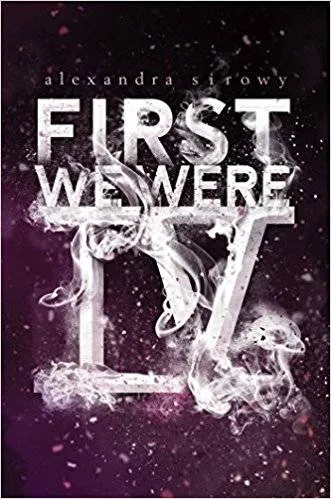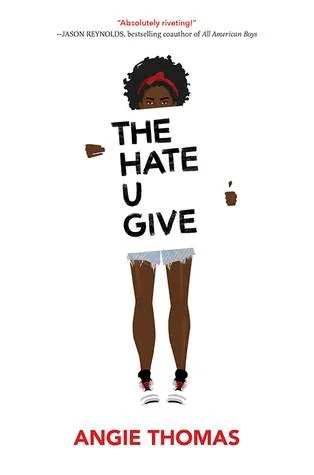
Political Resistance in Teen Lit
This is a guest post from Alexandra Sirowy, the author of the young adult thrillers The Creeping, the Bram Stoker Award® Nominated The Telling, and the upcoming First We Were IV. Alexandra attended a women’s college for her undergraduate work in International Relations and received her graduate degree in International Studies. When she isn’t writing, she likes to travel, read, eat, and get into mischief. She lives in Northern California. Twitter: @AlexandraSirowy.
Shortly after my first young adult thriller was published, I attended a funeral. If funeral receptions can be light-hearted, this one was the sort where tears were rare and people were mostly mingling and eating.
A family friend had my ear by the bar. Up until that point, he and his wife had been encouraging of my debut novel, The Creeping. After chatting about how writing my next novel was going, he leaned across the stack of cocktail napkins and whispered, “Once you have kids, you’re not going to want to write the kind of books you write.”
Flummoxed, I replied, “Suspense?”
“Yes, that too, but I mean books where kids don’t respect authority.”
I don’t remember the exchange that came after verbatim. I do recall wondering why the dad of a teenage girl would take issue with teens challenging the status quo and questioning authority, especially against the backdrop of small town secrets and little red headed girls vanishing in The Creeping. And he likely wouldn’t have said the same to a male author.

My lesser self wants to send this family friend a copy of my upcoming novel and ask him how he likes First We Were IV’s four protagonists and the fight they bring to the mayor and police department of their small town. These four best friends perceive an injustice and rather than accept it, they question, plot, and revolt. They don’t accept the prejudice underlying the police’s she-was-asking-for-it attitude when a teenage-girl-runaway shows up dead. They don’t care that the powers-that-be want the crime forgotten. And they’re not above lighting stuff on fire, literally and figuratively, with their campaign of pranks to get justice – and revenge. They resist because they know it’s important.
I’ve been thinking about political resistance since the unit on women’s liberation in high school. As an undergrad at a women’s college in Oakland, I was schooled on resistance. And lately, like a lot of people, regardless of what side of the aisle they fall on politically, I’ve been thinking about resistance in terms of the divisions in our country.
You’d think I’d have a working definition for political resistance by now, but trying for one feels like hitting a moving target. There’s a sliding definition for resistance in life and literature. I have friends who are resisting with hashtags, others with protest signs, and others with their pens. When you have a leader who, by his own admission, grabs women by their genitalia, doesn’t even ask, more and more begins to feel like activism and resistance on the page. I write female characters who would call bullshit – misogyny, rape culture, and violence – on such a comment and never dismiss it as boys being boys. Is this resistance now? Would it have been political resistance four years ago? Like authority, political resistance is relative.
I don’t think that writing for teens should be different than writing for adults. I don’t set out to teach my readers lessons. I write morally complex suspense novels. Sure, there are silver linings in my books, like friendships, high school romances, and parties, but I’m not teaching readers to be good people, or bad people. That’s not my job. I’m an artist and I aim to see the world and its truths reflected in my work, even in a somewhat heightened reality where small town mysteries abound and killers roam the woods. Give me characters that question the morality and rational of the status quo, and give me characters who don’t, in the same book.
Too many people are fighting and resisting for artists to ignore it and for publishers to ignore the voices of those artists writing from a place not of mere ally-ship but of experience and identity.
Resistance comes at a steep cost in First We Were IV – one of the four protagonists doesn’t survive their rebellion. Consequences exist when you veer into vigilantism and violence. I believe teens are savvy and smart enough to infer that.

Here are some with protagonists who resist everything from the patriarchy, classism, totalitarianism, corruption, and Islamophobia. Moxie by Jennifer Mathieu, We Were Liars by E. Lockhart, The Lie Tree by Francis Hardinge, Does My Head Look Big in This? By Randa Abdel-Fattah, The Queen of the Tearling series by Erika Johansen, and the ever-timely Fahrenheit 451 by Ray Bradbury.










